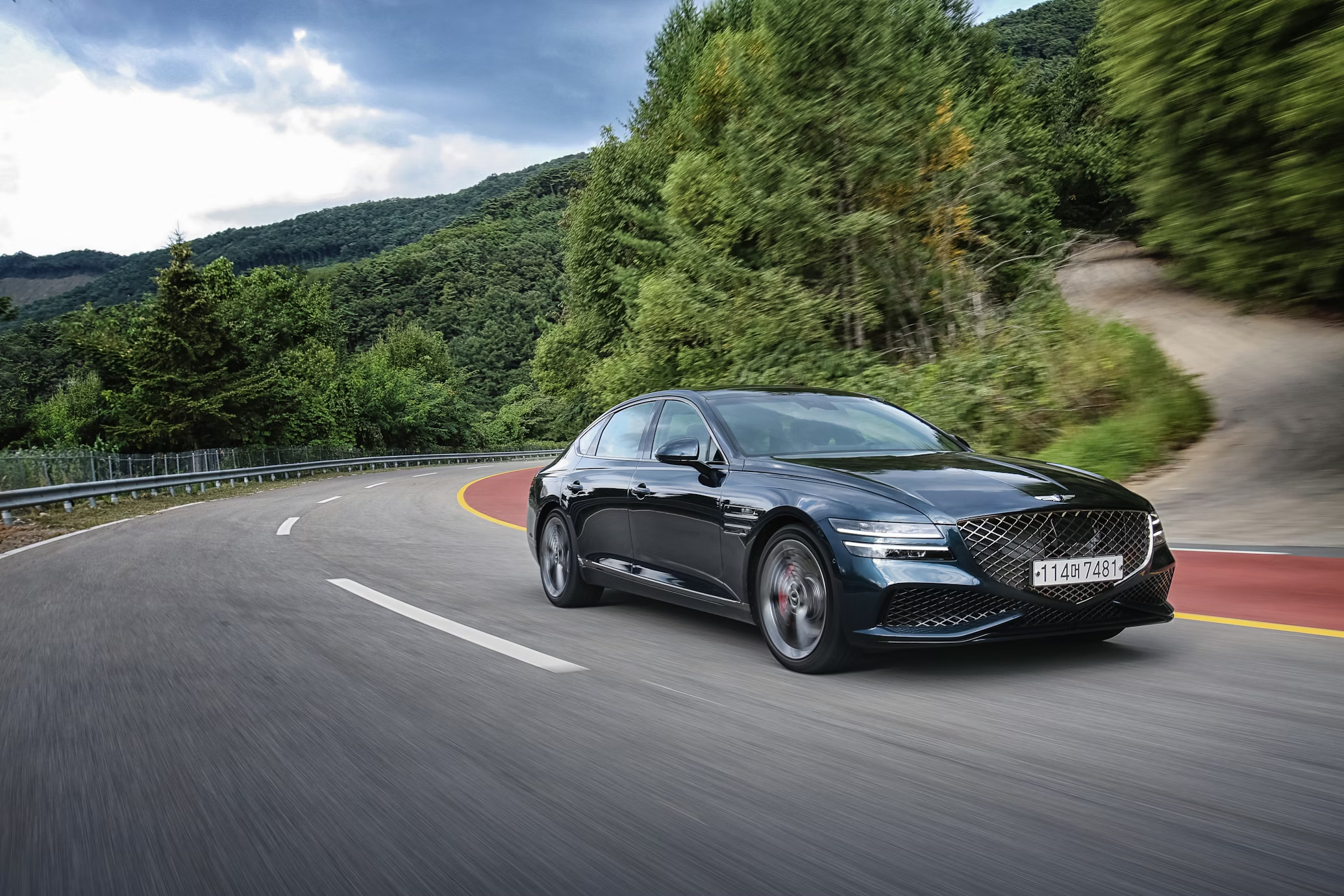
Long-distance road travel is changing fast, driven by new technology and shifting traveler expectations. The infrastructure for electric vehicles (EVs) is growing, increasing the accessibility of sustainable mobility. At the same time, luxury travel options are taking road trips to a whole new level.
Today’s drivers want efficiency, comfort, and eco-friendly options for long journeys. These developments are revolutionizing road trip experiences by fusing elegance and sustainability. The future of long-distance travel looks very different from the road trips of the past.
Table of Contents
The Rise of Electric Vehicles and Their Impact
The rising demand for electric cars (EVs) is radically changing the nature of long-distance traveling. Pew Research Center states that about 38% of Americans say they’re very or somewhat likely to consider an EV for their next car purchase. This growing interest reflects a shift toward more sustainable driving options. As awareness of EV benefits increases, more drivers are exploring the idea of making the switch.
As more drivers switch to EVs, the demand for convenient and reliable charging infrastructure is surging. In response, governments and private companies are expanding EV charging networks, particularly along major highways and popular road trip routes.
The Department of Energy notes that the number of EV charging ports doubled between 2019 and 2023, rising from 87,352 to 161,562. Since 2019, public charging has continuously increased each quarter. Public charging ports represented about 88% of all charging stations available by the first quarter of 2023.
Charging stations have become critical to this transition, evolving into essential stops for EV drivers setting out on long-distance road trips. While gasoline stations have dominated highways for over a century, a new infrastructure is emerging to meet the needs of electric vehicles. An EV charging station can be strategically placed at key points along major travel routes, rest stops, and even destination hotels.
According to LilyPad EV, major EV charging station providers are leading the expansion of this vital infrastructure. Many providers are focusing on building reliable, accessible charging stations across diverse locations, from urban centers to rural highways. This expansion ensures that long-distance EV travel becomes as smooth and convenient as traditional gasoline-powered trips.
What benefits do EVs offer for travelers?
Electric vehicles provide numerous benefits for travelers, including lower fuel costs and reduced environmental impact. They also offer a quieter driving experience and fewer maintenance requirements compared to traditional vehicles. As charging infrastructure improves, long-distance travel in EVs becomes increasingly feasible and convenient.
A First-Class Road Trip Experience
Luxury travel is no longer limited to air or train journeys; it’s now becoming an integral part of road travel. High-end travelers are increasingly seeking customized road trip experiences that cater to their desire for comfort, convenience, and exclusivity.
Grand View Research mentions that the global luxury travel market was valued at approximately USD 1.38 trillion in 2023. This growth is largely fueled by increased spending from elite travelers seeking to explore off-the-beaten-path destinations and gain unique experiences. Additionally, the rising popularity of micro trips and the rapidly expanding tourism sector worldwide are contributing to this upward trend.
Travel agencies are stepping up to meet this demand, offering bespoke itineraries that include premium vehicles, curated accommodations, and exclusive experiences along the way. A luxury travel agency specializes in creating personalized travel plans that go beyond the typical road trip. They take the time to learn about the preferences of their customers, ensuring that every detail of the trip is planned to maximize satisfaction.
According to Windy City Travel, these agencies prioritize comfort by selecting high-end vehicles and arranging for chauffeurs who ensure a seamless travel experience. Moreover, the accommodations they recommend often feature luxurious amenities, such as spa services, gourmet dining, and personalized concierge services. Travelers can expect to stay in boutique hotels or luxury resorts that enhance their overall experience.
What unique experiences do luxury travelers seek?
Luxury travelers often seek unique experiences that include private tours, exclusive events, and customized itineraries. They may look for off-the-beaten-path destinations or personalized services, such as private chefs or local guides. These experiences enhance the journey and create lasting memories tailored to their specific interests.
Tech-Driven Innovations Enhancing Long-Distance Travel
Aside from EVs and luxury travel, new technologies are transforming the entire road travel experience. GPS systems with real-time traffic updates, advanced driver assistance features, and even semi-autonomous driving capabilities are making long-distance driving safer and more efficient.
Deloitte highlights that travelers are increasingly favoring tech-enabled planning, booking, and post-travel experiences. To meet this demand, brands must prioritize digital innovation, incorporating features like virtual reality experiences and IoT-enabled in-room preferences. Additionally, the desire for one-stop solutions is driving cross-brand alliances, allowing travelers to enjoy unique and comprehensive experiences.
Additionally, mobile apps now provide travelers with instant access to navigation, fuel stations, rest stops, and accommodation booking. Other conveniences, like smart vehicles equipped with Wi-Fi and entertainment systems, are enhancing the overall comfort of the journey. With these innovations, long-distance road travel is becoming more accessible, efficient, and enjoyable for modern drivers, reimagining the way we travel by car.
How are mobile apps changing road travel?
Mobile apps are revolutionizing road travel by providing instant access to navigation, fuel stations, and accommodation bookings. These apps offer real-time information, helping travelers avoid delays and find convenient stops. Additionally, features like entertainment options and local recommendations enhance the overall travel experience, making journeys more enjoyable.
The future of long-distance road travel is evolving through a blend of key factors. The rise of electric vehicles, supported by expanding charging infrastructure, is making sustainable travel more accessible than ever. At the same time, luxury travel agencies are crafting personalized experiences that prioritize comfort and exclusivity.
Meanwhile, technological advancements, including smart navigation systems and connected vehicles, are boosting efficiency and convenience on the road. Together, these innovations are reshaping how we approach long-distance travel, merging sustainability, luxury, and technology to create journeys that are both enjoyable and fulfilling.
- 8 Steps to Start a Rental Storage Unit Business - February 17, 2026
- Bad Rack And Pinion Symptoms You Should Never Ignore - February 10, 2026
- How To Fix Exhaust Leak Properly Without Costly Mistakes - February 10, 2026
